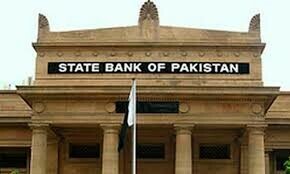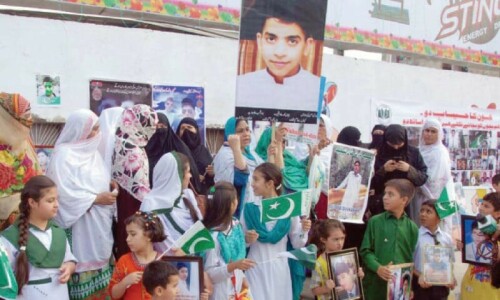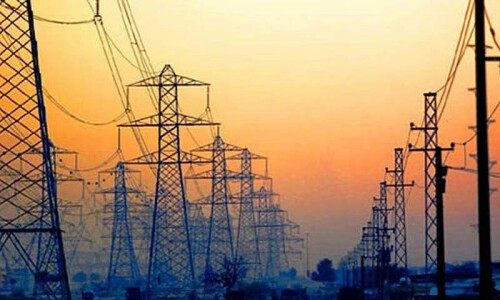IN peace research and social psychology many see ‘contact hypothesis’ as a way to reduce prejudices. The Pakistan cricket team is touring India after a gap of five years to play two T20s and three one-day internationals (ODIs), with thousands of Pakistani cricket fans being issued visas for India to watch these matches. Will contact between the two nationalities help in reducing prejudices and stereotypes?
Contact hypothesis works on the basic premise that prolonged conflict creates stereotypes and prejudices and dehumanises the other because of ignorance and the communication gap between people in conflict. According to this theory, contact among people in conflict will improve relations by reducing prejudices and stereotypes. However, later studies reveal that contact hypothesis cannot be accepted at face value and that in some instances increased inter-group contact may even damage relationships. Social psychology researchers say contact which is competitive in nature may damage ties rather than help the cause of peace.
Cricket like other sports is a competitive team game where one side always loses while the other wins. Moreover, cricket fans in India and Pakistan become very emotionally attached to the game whenever the two sides play each other. I remember my conversation with an Indian friend from Maharashtra. I was telling him that cricket can be a good bridge between the two peoples. He said he hated India-Pakistan cricket matches because whenever the two sides played in his hometown, there was Hindu-Muslim tension in the area.
However, unlike football rivalry in Europe, thankfully India-Pakistan cricket rivalry has never really translated into open clashes between fans of the two sides. Overall, cricket fans of both countries have shown maturity despite their immense emotional attachment to the game. But there is the ugly side of the story as well. Cricket fans would remember the 1997 Sahara Cup incident when Inzamam-ul-Haq attacked an Indian spectator with a bat for making fun of his physique.
Even more serious was the incident during the inaugural Asian Test Championship match in Calcutta during the 1999 tour of the Pakistan cricket team. In that incident, after Sachin Tendulkar got out at a crucial moment, the Calcutta crowd became very angry and threw bottles at Shoaib Akhtar whom they considered responsible for Tendulkar’s departure from the field. On the last day when Pakistan’s victory became apparent, spectators started lobbing empty bottles, fruit and stones onto the field, making play impossible. Finally the match was resumed after the stadium was emptied by police.
But this does not mean competitive sports like cricket cannot be a bridge between communities in conflict. In peace studies researchers increasingly use sport as a tool for bridging relationships across social, economic and cultural divides and dealing with prejudice and trauma. This year on Nov 28, the UN General Assembly also passed a resolution recognising sport as an important tool for development and peace.
In the case of India-Pakistan cricket rivalry as well, during the last decade the trend has started to shift. The fans earlier used to see India-Pakistan cricket matches as another war front but now more and more fans have started to take winning and losing as part of the game. In this regard, the Indian cricket team’s tour of Pakistan in 2004 was a watershed. The friendly atmosphere and sportsman spirit in which this series was played and watched was unprecedented in the history of India-Pakistan cricket rivalry. The Indian cricket team received a standing ovation from thousands of spectators at the National Stadium in Karachi after defeating Pakistan in the first ODI.
Later on, the same spirit continued throughout the tour wherever the Indian cricket team travelled in Pakistan. The other feature of this series was that a very large number of Indian fans had travelled to Pakistan. Pakistanis opened their hearts and houses for their Indian guests and some developed lasting friendships. The same spirit and hospitality was reciprocated by Indian fans when the Pakistan cricket team toured India in 2005.
Since the 2004 Indian tour, India-Pakistan cricket matches have not only helped in bridging the communication gap between common Indians and Pakistanis but, on several occasions, have provided a useful platform for the political leadership of the two countries to sort out differences and move ahead. During the 2005 series, Musharraf and Manmohan Singh watched an ODI in Delhi sitting side by side and later, in a joint statement, declared “the peace process was irreversible”.
The then prime minister Yousuf Raza Gilani and Manmohan Singh watched the World Cup 2011 semi-final between India and Pakistan together in Mohali. According to one account, they decided to move ahead on trade affairs during this meeting. On this occasion, Manmohan Singh also declared cricket as a “uniting factor” between the two countries and called for putting animosities aside.
According to peace research and the contact hypothesis theory, cricket and other sports can indeed be a uniting factor if the game is played with a sporting spirit but at the same time it can be a dividing factor if emotions spill over. Cricketers, officials and the media in India and Pakistan have to be extra careful when referring to the matches. Otherwise, a single controversial remark, like Afridi’s when he said that “Indians were not as large-hearted as Pakistanis” on his return from the 2011 world cup, can destroy the whole purpose.
The writer is a faculty member at Quaid-i-Azam University and is a PhD candidate at the Peace Studies department of the University of Bradford, UK.
saeed_rid@yahoo.com











































